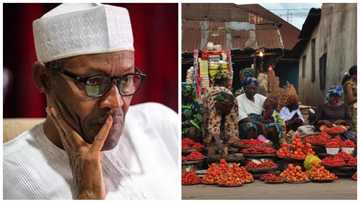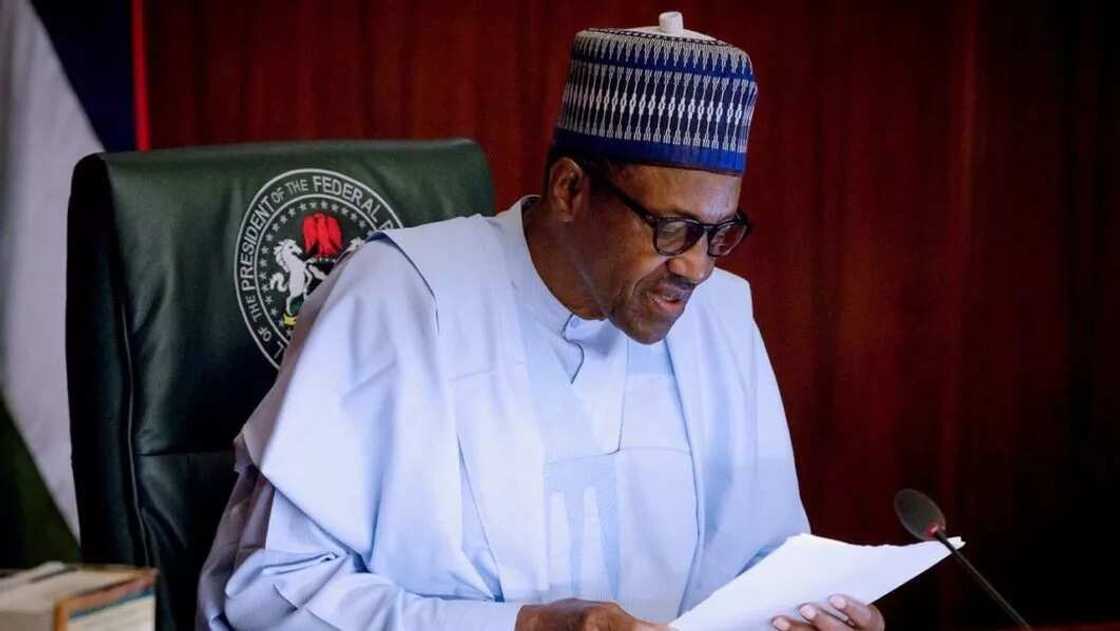Each Nigerian Now Owes Over N200,000 of National Debt as FG Takes Another N2trn in 3 Months
- As Nigerians prepare to get ready for the general election, new data has shown that Nigeria's debt stock has further increased
- This is due to an additional borrowing of N2 trillion in the first three months of 2021 from local and foreign sources
- The public debt stock covers the total domestic and external debt of the Federal Government and state governments and the Federal Capital Territory
PAY ATTENTION: Click “See First” under the “Following” tab to see Legit.ng News on your Facebook News Feed!
Each Nigerian is now owing at least N201,941 as their share of the country’s debt. It is the most each Nigerian would owe as a function of debt per capita (or debt per person).
The current level is a jump from N45,173 owed by each Nigerian when January 2013 started, to N159,675 at the beginning of last year (2021), Legit.ng analysis has shown.

Read also
Economists raise concerns about Nigerians' survival as inflation jumps to 11-month high, hits 17.71 per cent
According to data released on Tuesday, 7 June by the Debt Management Office (DMO), Nigeria’s total debt as of March 31, 2022, increased to N41.60 trillion from N39.55 trillion as of the end of 2021.

Source: Facebook
This indicates that between January and March, the federal government, State borrowed N2.04 trillion.
PAY ATTENTION: Follow us on Instagram - get the most important news directly in your favourite app!
Citizens' debts on the rise
When the debt stock of N41.60 trillion is divided by an estimated population of 206 million according to World Bank data, it gives N201,941(earlier referenced) as a representation of what the debt per head or debt per capita translates into.
This is a N10,051 increase when compared to N191,889 it stood as at December 2021.
When non-Nigerians who are part of the population estimate are removed, the debt owed by every Nigerian would increase, at least theoretically.

Read also
Angola overtakes Nigeria as Africa’s biggest oil producer after worst production output in months
Years of debt increase
Nigeria's public debt stock has been on the rise, so does what every Nigerian owes when all of the country’s debts (Federal, State and FCT) are divided per person.
Debt per capita for a year is calculated as what was owed at the end of the previous year, which would be the opening debt stock for that year.
The country’s ballooning debt stock has been a source of concern in recent years, with several commentators warning of a potential debt trap, which future generations may be saddled with and arguable benefits to be seen from the rapidly increasing borrowing.
Legit.ng had earlier reported that the IMF raised concern on Nigeria's growing debt, as it feared that 100 per cent of Nigeria's revenue could be spent to service debts by the administration that succeeds President Buhari.
DMO speaks
The Debt to Citizen ratio, like the Debt to Revenue ratio, is always disregarded by the DMO, but it is used by analysts to give debt stock a human face.

Read also
The list of states with the highest domestic debt stock revealed as debts hit N4.84 trillion
According to Investopedia a financial website:
"When debt is compared in this manner, it becomes plausible for citizens to determine the relative extent of the burden placed by debt on the national budget"
However, in its press release announcing the latest public debt stock, DMO reminded Nigerians that there is room for more loans as it remains sustainable.
It said:
"The total public debt to GDP is now 23.27 per cent, which is below Nigeria’s self-imposed limit of 40 per cent."
List of 15 projects why Nigeria agreed to N2.50trn loan with China
Legit.ng had earlier reported that the Debt Management Office (DMO) announced Nigeria's overall public debt has risen to N38 trillion as of September 30, 2021.
The loan from China is one area many Nigerians are interested in amid stories of assets being seized from nations unable to repay their debt.
DMO has released a thorough analysis of loans received from China in the last 13 years, including how much has been returned and for what projects the funds were obtained
Source: Legit.ng



